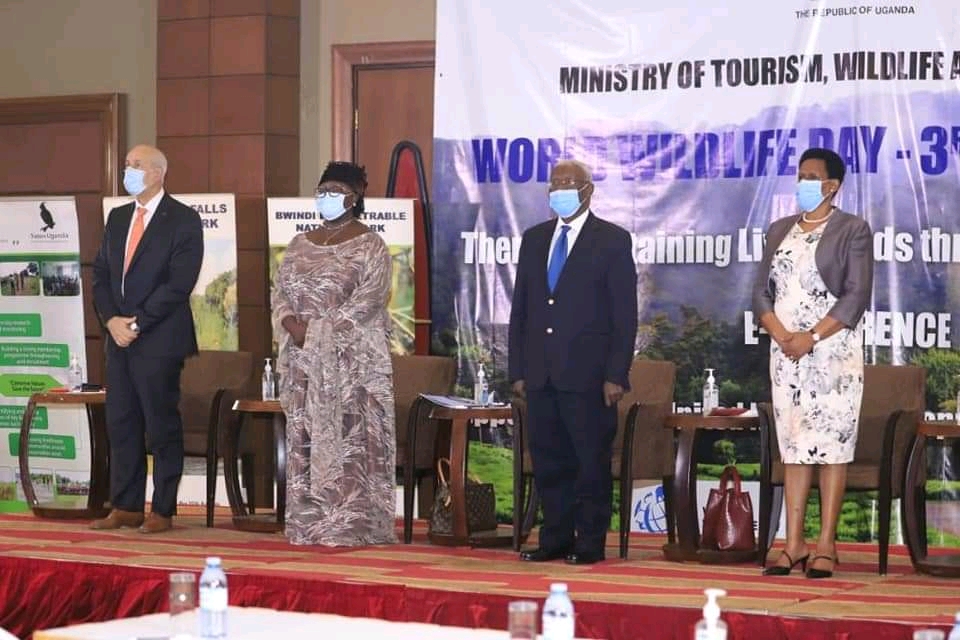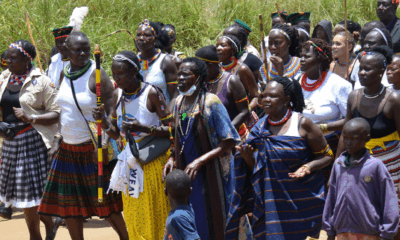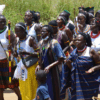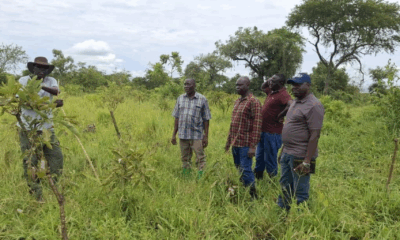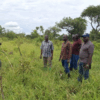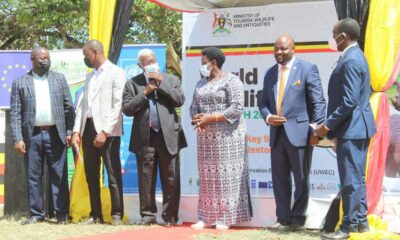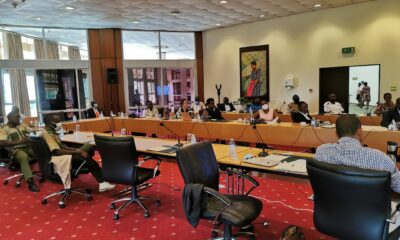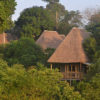National Parks
Forest Cover Conservation tops World Wildlife Day
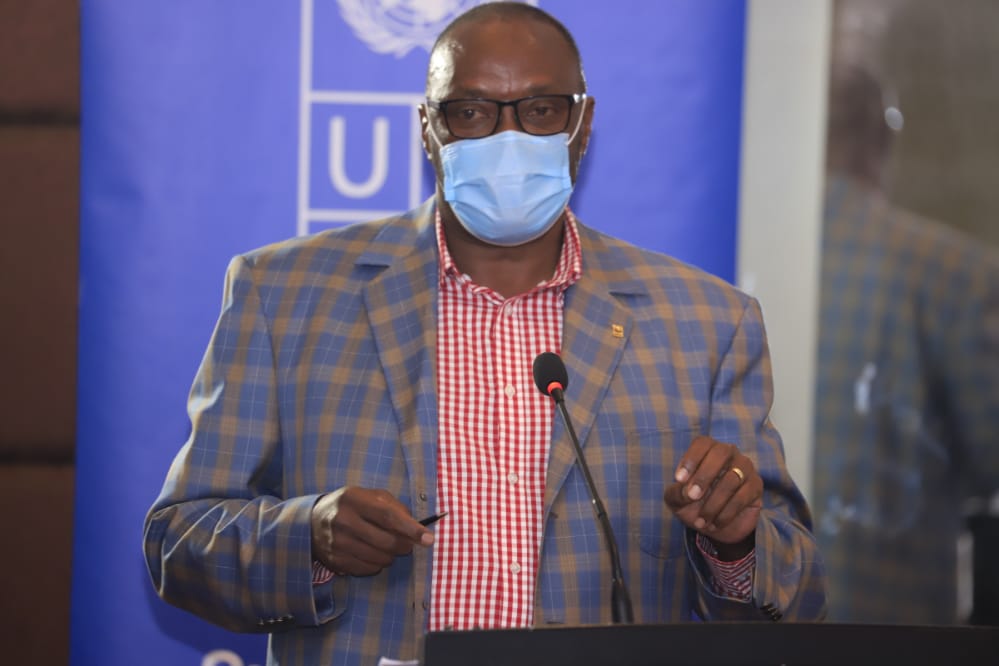
David Duli the WWF, country Director
Conservationists and stakeholders in the Tourism industry have appealed for the conservation and restoring of the forest cover in Uganda as the world marks the United Nations World Life Day under the Theme Forests and Livelihoods Sustaining people and Planet.
Speaking at the event held at Sheraton Hotel in Kampala, the Country Director WWF, David Duli said the current statistics are unfortunate as show a sharp decline in the forest cover from 90%-40% and some of these are as a result of encroachment which means that if you have demarcated you need to protect the forests.
By 2019, Uganda’s Forest cover has been depleted to 8%up from 24% in 1990s.
Duli said the country needs to bend the curve by conserving the forests but also planting more and this can be done with engaging the private sector and the citizens since the impact of degrading the forest cover have been felt where streams have dried , productivity is down.
“Markets is one of the key drivers leading to degradation of our forests we need to develop incentives that promote the installation of indigenous species, there has been some significant gains like mountain gorillas conservation when you go to Bwindi you’ll see that for yourself we have seen some of the difficult areas to demarcate being demarcated, this means preserving and conserving the forests” he said.
Duli said the country’s population has increased and the pressure is very high on the forests and this population is overwhelming given the fact that even when demarcation has taken place, people keep going to the Boundaries.
He said as WWF they have entered a Memorandum of Understanding with the Buganda Kingdom, Church of Uganda, among others with an objective of conserving and preserving the forest Cover, and also engage citizens who look at forests as business.
Duli added, the country needs to aggressively promote and develop incentives that promote indigenous species which he believes are more valuable than other species.
He said theres need to embrace the importance of forest-based livelihoods to promote forest and forest wildlife management models and practices that accommodate both human well-being and the long-term conservation of forests.
The Uganda wildlife Authority Executive Director Sam Mwandha said by cutting of forests, the country is removing what’s essential for the environment and if it’s continued, there will be a time when the resources are no more yet they’re needed.
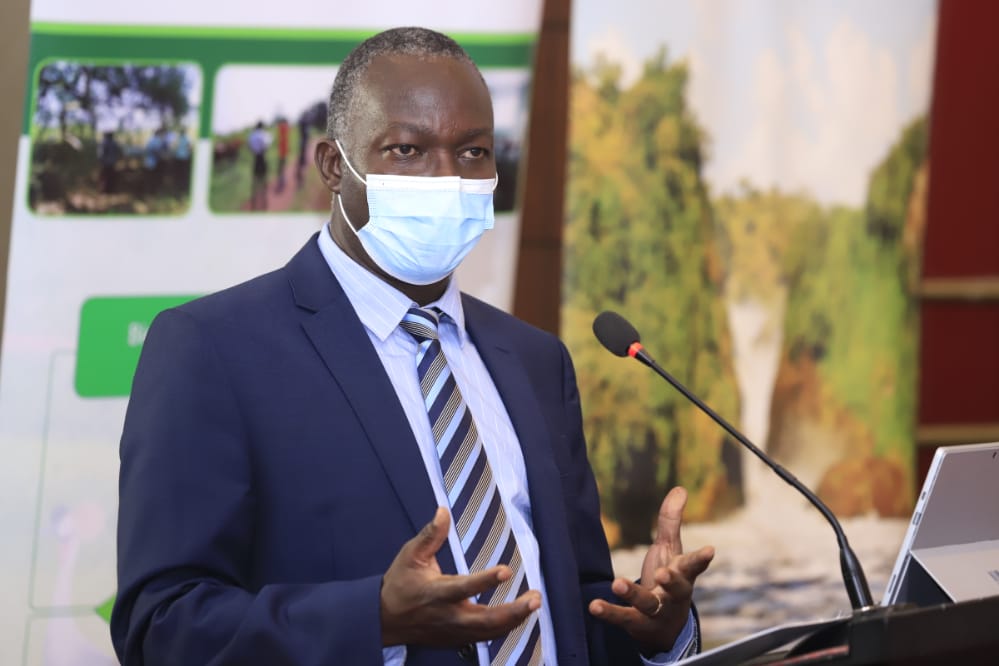
Sam Mwandha the Executive Director Uganda Wildlife Authority
He said the forest cover in the country has been declining in the country at a fast rate and without forests; mankind survival is in jeopardy, ‘forests provide a home for a diversity of animal species’.
He added, “Degradation of forests leads to impact on livelihoods such as displacement of wildlife which end up in the areas people reside , it can also lead to floods, mudslides, unreliable rainfall, we need to align ourselves to addressing the sustainable goals if we are to survive.”
He said the country is losing a number of forest cover in the private land but there’s an increase in the forest cover in the forests under national parks and the wildlife in the protected areas is increasing though the COVID affected the industry.
“There’s an increase in the forest cover in National parks and forests under government and am increase in wildlife in these National parks although COVID affected us, UWA before COVID in 2019 made over.
Professor Robert Bitariho from the Institute of Tropical Forest Conservation, the key note speaker said 1.6 Billion People in the world depend on forests for their livelihoods as many countries in the developing world use fuel to meet as much as 90% of their energy requirements.
He said forests breathe for the earth and produce oxygen required for humans we can’t survive on this planet without forests.
Bitariho said Uganda has experienced a sharp decline in forests, Uganda continues to rely on woody biomass for 92% of its domestic energy consumption not different from other speakers, he said conversion of forests into agricultural land as human population increases in Uganda is contributing to loss of forest cover.
He said forests breathe for the earth and produce oxygen required for humans we can’t survive on this planet without forests.
“Average annual incomes from different forest types ranged between 8%-36% of annual income to the households on average 75% of forests produce is consumed at house level, the total income value of Uganda’s forest is about 593.24 billion as the majority of direct forest beneficiaries are currently not recorded in national economy,” he said.
The National Forestry Authority Executive Director, Tom Okello said the country needs more effort to restore the degraded environment and Natural Resources , he said we need to embrace planning in our use of the natural resources.
“The pressure is too much on the Natural resources we need to think of development standards for use and stamp out corruption, develop meaningful partnerships with all stakeholders,” he said.
Okello added “We need tom address the Issue of illegal resources for us to sustainably utilize our resources we need better forest protection and enforcement.”
The Minister for Tourism Wildlife and Antiquities Tom Butime who was the chief Guest said this year the day is being celebrated under the theme forests and livelihoods and the plant, he said the National Theme for the day is “Sustaining livelihoods through Conservation”.
He said on the December,20 2013 was the day March,3 was chosen to celebrate world flora and fauna and prior to COVID19 tourism was the leading foreign exchange earner.
“It was a cash cow for the country we shall push on and revive this industry as the sector provides 8% of the total employment in the country, the country has embarked on a path to recover the forest cover, we must work to restore the forest cover to about 20%,” Butime said.
The United Nations Development Program Representative for Uganda Elsie G Attafuah said most of the water we drink comes from forests; our agriculture is based on forests including the basics like pollination.
She said as UNDP, they have partnered with the government of Italy, the Catholic Church and UNESCO to preserve biodiversity around mountain Moroto.
“To achieve the2030 world agenda there is need to transform Uganda social economic mode to more sustainable partners of production and consumption” Elsie Said.
The German Ambassador to Uganda Matthias Schauer, said the European Union and its member states have a long standing history of ernvironmemtntal conservation, he said they recognize the great work done by different individuals to safeguard Uganda’s natural resources as the value for protecting forest cover is high.
“We had the opportunity to talk about these things with president Museveni and we found his views in line with the people we met during our outreach,” He said.
The Uganda tourism Association Chairperson Pearl Hoareau Kakoza Said forests are a heritage and must be protected for the future generation.
“The private sector has overtime been involved in campaigns on the total ban of the use of our waterfalls to generate electricity, we thank the tourism ministry and UWA for the continued efforts to preserve and develop the tourism sector,” she said.
At the Event, the Proprietor Of Great Lakes Tours and Travel, Amos Wekesa was given the Sustainable Eco Tourism Award for his role in applying best [practices in sustainable eco-tourism management and demonstrating exceptional commitment to protection of wildlife and Natural Environment.
Comments



